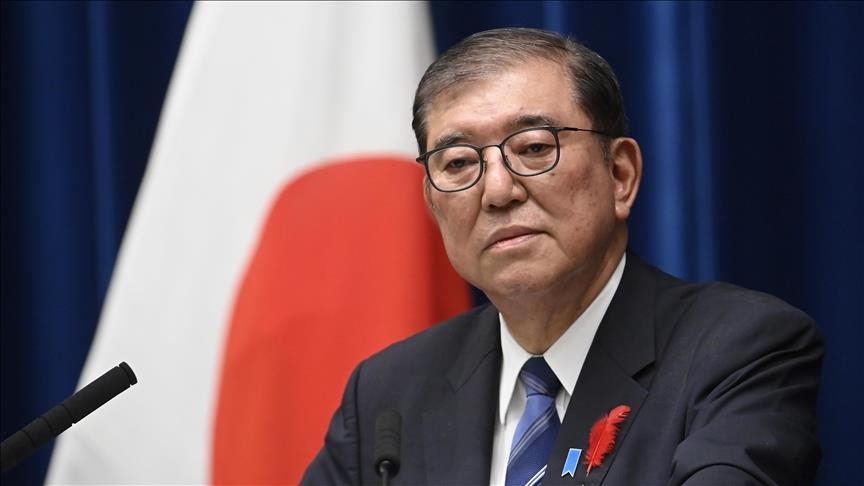Japan's premier vows to end territorial dispute with Russia
Russian diplomat, however, sees no possibility of resuming negotiations with Tokyo on peace treaty

ISTANBUL / MOSCOW
Japanese Prime Minister Shigeru Ishiba pledged Friday to end a long-standing territorial dispute with Russia, regretting the two sides had not reached a peace deal even though 80 years had passed since World War II.
"It's truly unfortunate and regrettable that the territorial issue has yet to be resolved, and no bilateral peace treaty has been signed, even as we mark 80 years since the end of the war," Ishiba said in a video message.
Meanwhile, Russian Deputy Foreign Minister Andrey Rudenko said Moscow sees no possibility of resuming peace treaty negotiations with Tokyo under the current circumstances.
The diplomat said that since the start of Russia’s "special military operation" in Ukraine in February 2022, the Japanese government has systematically dismantled Russian-Japanese relations built over decades through mutual efforts.
Rudenko pointed out that Tokyo has imposed 25 “packages” of illegitimate sanctions against Russia, while Japanese public opinion is being deliberately “poisoned” by Russophobic ideology, promoted by politicians, government officials, and national media.
At the same time, Japan’s joint military activities with the US and other NATO members near Russia’s Far Eastern borders have demonstratively intensified.
The official also cited Japan’s support for Ukraine as another divisive factor.
“In such circumstances, we see no possibility of resuming negotiations with Tokyo on a fundamental agreement that was meant to serve as the basis for long-term good-neighborly relations. This position was outlined in the Russian Foreign Ministry’s statement dated March 21, 2022,” Rudenko said.
Russia and Japan have not signed a peace treaty since World War II and have a territorial dispute over what Moscow calls the Southern Kuril Islands — a set of four islets — Etorofu, Kunashiri, Shikotan and the Habomai islet group controlled by Russia that Japan identifies as the Northern Territories.
Ishiba said his government will make it a "priority" to restart exchange programs that enable former Japanese residents to visit.
At the 1945 Yalta Conference, the former Soviet Union agreed to begin military operations on the eastern front in exchange for receiving some Japanese territories, including the Kuril Islands.
After the war, however, with the start of the Cold War, supported by Western countries, Japan rejected the Soviet Union's sovereignty over the islands.
Due to the dispute, Russia and Japan have never signed a peace treaty and are technically still at war.
Tokyo regularly protests visits of Russian officials to the islands.
Russian authorities fear the possible deployment of US missile systems on the islands if they are returned to Japan, posing a direct military threat to Moscow.
Anadolu Agency website contains only a portion of the news stories offered to subscribers in the AA News Broadcasting System (HAS), and in summarized form. Please contact us for subscription options.







